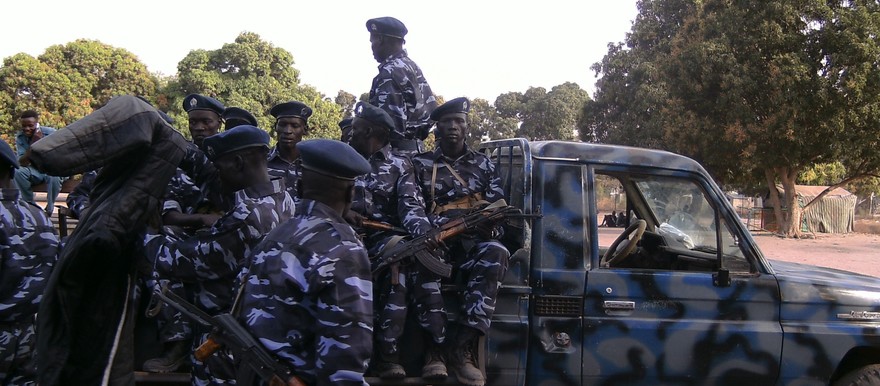The South Sudanese government is threatening to reconsider the ‘Status of Forces Agreement’ on UN peacekeeping presence in the country, while ordering its security forces to increase searches of UNMISS and humanitarian vehicles.
There were numerous reports of harassment of UN personnel last week, including several assaults, as well as pro-government protests in Wau, Rumbek and Juba.
Non-governmental organizations have also been affected, with aid agency OCHA reporting that operations were “severely constrained by impediments on road movement of aid organizations or contractors transporting relief supplies.”
In a report published Friday, OCHA referred to “increased levels of harassment and irregular fees and taxes,” saying the restrictions were particularly affecting efforts to deliver food assistance before more rains make roads impassable.
Insecurity and warfare had already cut off aid to huge parts of Unity, Jonglei and Upper Nile states since mid-December, but the new measures are now also increasingly affecting aid even in uncontested government-held territories, including Central Equatoria, Western Bahr el Ghazal, Warrap and Western Equatoria.
These new government practices follow the publication of the UN Interim Human Rights report last month, which the government alleged to be false and countered with accusations that UN peacekeepers may be smuggling weapons to rebels.
Michael Makuei Lueth, the government spokesman, told reporters after a meeting of the council of ministers on Friday that the cabinet resolved that all UN or humanitarian operations would be subject to thorough checking.
The spokesperson again questioned the neutrality of UNMISS and said they would revisit the Status of Forces Agreement, which is set to expire in June 2014.
He said the government would not compromise security at the expense of relief. He further accused UN Humanitarian Coordinator Toby Lanzer of encouraging displaced people (IDPs) to stay inside UN compounds rather than returning home.
The UN relief official had stated that IDPs inside UN bases “cannot go anywhere else,” explaining, “They don’t feel safe to put one foot outside these compounds.”
But the government spokesman and other officials have insisted that people should leave the UN compounds. Makuei was furious in January when peacekeepers prevented his armed bodyguards from entering a ‘Protection of Civilians’ site in Bor.
Meanwhile, there are reports of delays of salary payments for soldiers and other security forces in parts of the country.
File photo: Police on patrol in Lakes State




